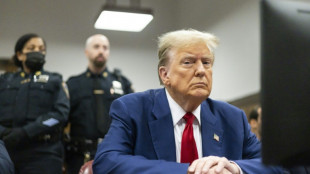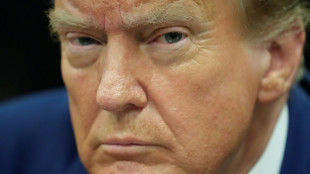Croatia ruling conservatives win most seats, but not majority: exit poll
Croatia's ruling conservative party won the most seats in a parliamentary election on Wednesday, but not enough to form a government alone and less than in the previous vote four years ago, an exit poll showed.
The Croatian Democratic Union (HDZ) won 58 seats in the 151-member assembly, according to the poll by Ipsos agency. In the previous 2020 vote, the HDZ won 66 seats.
A centre-left coalition led by the Social Democrats (SDP) won 44 seats, the survey showed. The right-wing Homeland Movement and green-left Mozemo ("We Can" in Croatian) parties followed with 13 and 11 seats, respectively.
Turnout was high after a bitter campaign between the incumbent conservative Prime Minister Andrej Plenkovic and left-wing populist President Zoran Milanovic, who campaigned despite a court warning.
The showdown came as the European Union nation wrestles with corruption, a labour shortage, the highest inflation rate in the eurozone and illegal migration.
By 1430 GMT, two and a half hours before polls closed, turnout was above 50 percent, the state electoral commission said. This compared with 34 percent at the same time during the previous election in 2020.
For months, Plenkovic and his HDZ seemed poised for an easy victory that would secure his third term as premier.
But in mid-March, Milanovic made the shock announcement that he would challenge Plenkovic and become candidate for the Social Democrats.
The Croatian presidency is a largely ceremonial office for a person without a political affiliation.
Labelling the elections a "referendum on the country's future", Milanovic, 57, urged citizens to "go out and vote for anyone but the HDZ".
Calling Plenkovic the "godfather of crime" Milanovic highlighted the recent appointment of the country's new chief prosecutor, a judge with alleged ties to corruption suspects.
Corruption has long been the Achilles heel of the HDZ.
Several of Plenkovic's ministers have stepped down following accusations and the anti-graft fight was key to Croatia's bid to join the EU in 2013.
- 'Pro-Russian' -
Milanovic canvassed across Croatia despite the country's top court ruling that he could only stand in the election if he steps down as president first.
Plenkovic -- who has served as premier since 2016 -- accused his rival of violating the constitution, engaging in hate speech and called him a "coward" for not resigning.
The prime minister stressed his role in guiding the country of 3.8 million people into the eurozone and Europe's passport-free Schengen area last year.
But with an average monthly wage of 1,240 euros ($1,345), the country remains one of the EU's poorest.
"The global security situation has never been more tense and more dangerous ... so we need to have very responsible people running Croatia in the next four years," Plenkovic, 54, said after voting in Zagreb.
Plenkovic has repeatedly accused Milanovic of being "pro-Russian" due to his criticism of EU backing for Ukraine against Russia's invasion and the president's opposition to training Ukrainian soldiers in Croatia, which is a NATO member.
- 'Too long in power' -
The president tops political popularity surveys and his entrance into the campaign has boosted the SDP.
The HDZ has ruled Croatia for most of the period since its independence from Yugoslavia in 1991, while the SDP has been the opposition mainstay.
"HDZ has been in power for a little too long. Everything that lasts too long is not good," pensioner Damir Modric told AFP.
But for law student Tvrtko Bulaja, with an HDZ-led government "Croatia will continue its path of security, stability and prosperity".
Milanovic, who served as prime minister from 2011 to 2016, is known for his fiery rhetoric and profanity in tirades against HDZ opponents, EU officials and his critics.
His mandate expires in January but he said he would step down if the SDP and its allies secure a majority to form a new government.
First official results are due late Wednesday.
R.Gibson--MC-UK



